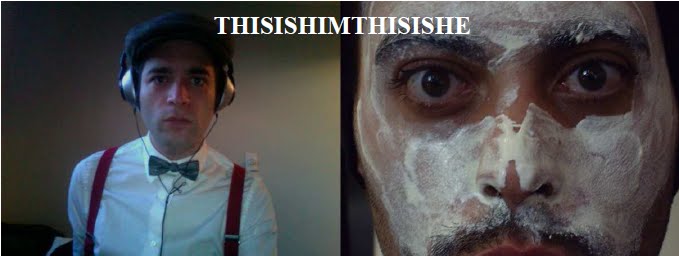1.
The Nice
Guy notes things of importance, said by other people, only to later realize
those things didn’t really matter, as they inform him later they were just
making small-talk and don’t remember the initial conversation’s details anyway.
2.
The word
“pussy” and its synonyms have no positive effect for the male gender, and is
especially harmful for the Nice Guy. It is, traditionally, something to own,
not be.
3.
Once a mind
has been made up, persuading assholes otherwise is an idiot’s errand. The Nice
Guy is better off buying a friend a cookie.
4.
The Nice
Guy has no concrete philosophy of his own. If he did, the adjective itself
would be entirely inappropriate, therefore causing the Nice Guy to lose his desired
status.
5.
The
adjective nice has no true meaning, being inherently a subjective word.
“Pleasant, agreeable, etc.” could mean any number of things depending on the
subject. A person could be pleasant, and yet not totally agreeable, therefore
rendering the word “nice” contradictory.
What is
“nice” to one person could be the opposite to another. The paradox of the Nice
Guy is that he attempts to be all things to all people. This is such an
impossibility, it is no wonder that the Nice Guy is actively treated like the
cipher he is.
6.
Emotional
outbursts by the Nice Guy, while necessary to counter the inherent emotional
difficulties of presenting himself as such for extended periods of time, will
be limited to moments alone, sitting by candlelight, listening to treacly pop
ballads and consuming, ever-so-slightly, too much red wine, purchased for the
price of $7 (approximately).
7.
The Nice
Guy’s self-perceived advantage will always be taken.
8.
Many an
asshole will try to pass themselves off as a Nice Guy, simply by offering up
examples of superficial “niceness” such as giving to charity, supporting local
causes, opening the doors for dates. This, again, puts the Nice Guy in an
eternal disadvantage: he loses claim to
the nomenclature while losing the sheer meaning he has built.
(Similarly,
there are many urban men who will consider themselves “theatre fags” even
though they have never sucked a cock and will only attend performances that
have a status element in even getting a ticket.)
9.
The last
refuge of the Nice Guy is passive-aggression. It is often the only weapon at
his disposal and will use it indiscriminately.
10.
The Nice
Guy will often have little trouble procuring romantic entanglements, which tend
to last anywhere between 2 weeks to a few years (often of the “off and on”
variety) often involving sexual relations that no partner could be content
with, the amount of attention being paid to them.
This
creates a one-sided situation, making those on the receiving end feel irrelevant,
like a body at best, like a bowl of cold spaghetti in a child’s haunted house,
barely passing for brains at worst.
11.
The age-old
cliché of “Nice Guys Finish Last”, while filled with a general timbre of
weakness and pity, a warning for what not
to be, at least can be considered true by some in the workplace, where the
idiom has its roots, especially for those organizations where gender roles are
rigidly adhered to.
“Nice Guys
are Paid Less” could be considered more relevant and true.
In all
actuality, nobody ever “finishes” what they do – i.e. live a productive life –
otherwise it would be clear that the notion of “finishing last” would be the
goal for everyone.
12.
The Nice
Guy will often be levied the criticism of not having a spark. While sparks themselves can create out-of-control fires that
require assistance in putting out, they also cause the fire that is so much a
force of life.
Such a
double-edged sword is like a traditional gamble in Vegas: sometimes you win, sometimes you lose.
The Nice
Guy goes to Vegas to visit Hoover Dam, swim in a pool, and maybe see Barry
Manilow.
13.
door·mat [dawr-mat, dohr-]
noun
1.
A mat, usually placed before a door or other entrance, for people arriving to
wipe their shoes on before entering.
2.
A person
who is the habitual object of abuse or humiliation by another.

